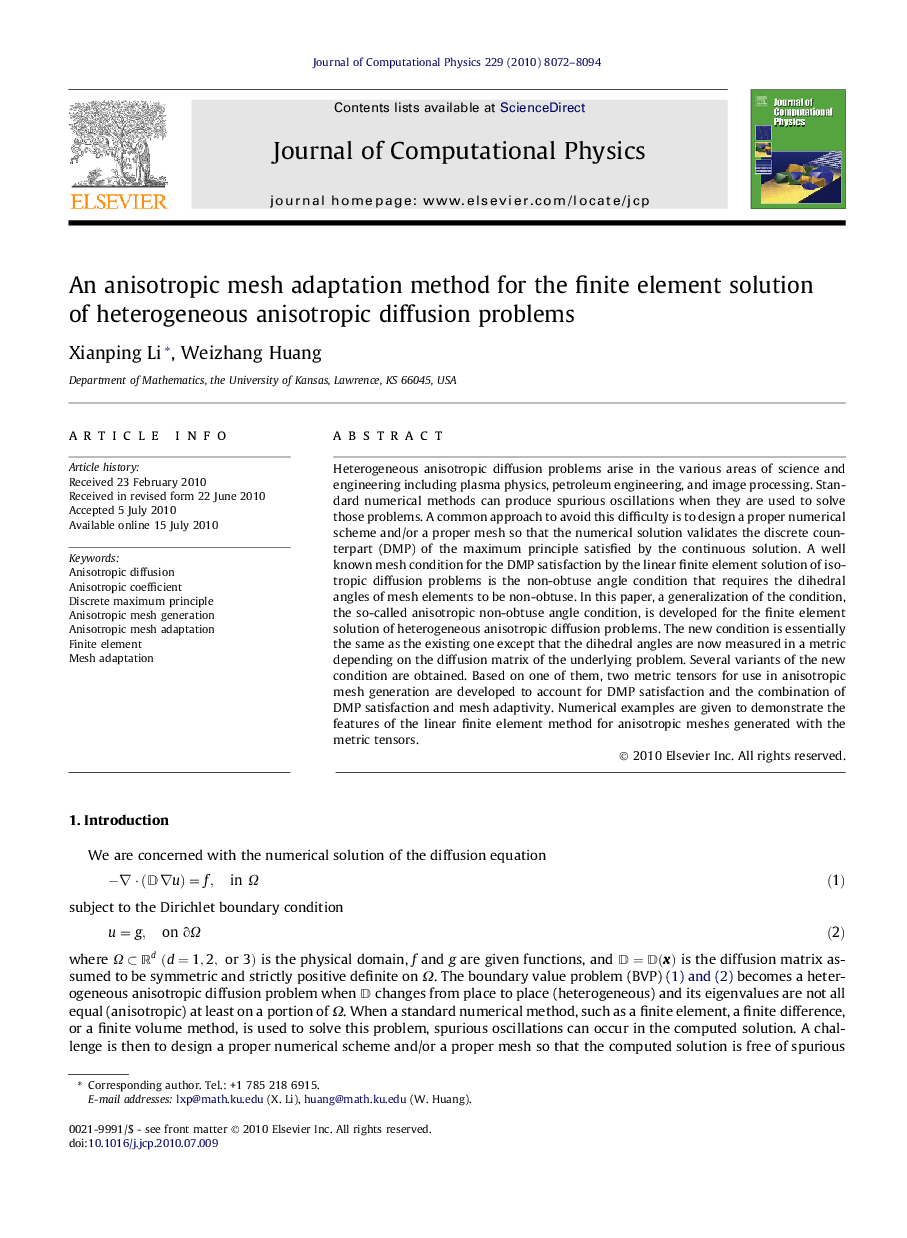| کد مقاله | کد نشریه | سال انتشار | مقاله انگلیسی | نسخه تمام متن |
|---|---|---|---|---|
| 520199 | 867701 | 2010 | 23 صفحه PDF | دانلود رایگان |

Heterogeneous anisotropic diffusion problems arise in the various areas of science and engineering including plasma physics, petroleum engineering, and image processing. Standard numerical methods can produce spurious oscillations when they are used to solve those problems. A common approach to avoid this difficulty is to design a proper numerical scheme and/or a proper mesh so that the numerical solution validates the discrete counterpart (DMP) of the maximum principle satisfied by the continuous solution. A well known mesh condition for the DMP satisfaction by the linear finite element solution of isotropic diffusion problems is the non-obtuse angle condition that requires the dihedral angles of mesh elements to be non-obtuse. In this paper, a generalization of the condition, the so-called anisotropic non-obtuse angle condition, is developed for the finite element solution of heterogeneous anisotropic diffusion problems. The new condition is essentially the same as the existing one except that the dihedral angles are now measured in a metric depending on the diffusion matrix of the underlying problem. Several variants of the new condition are obtained. Based on one of them, two metric tensors for use in anisotropic mesh generation are developed to account for DMP satisfaction and the combination of DMP satisfaction and mesh adaptivity. Numerical examples are given to demonstrate the features of the linear finite element method for anisotropic meshes generated with the metric tensors.
Journal: Journal of Computational Physics - Volume 229, Issue 21, 20 October 2010, Pages 8072–8094